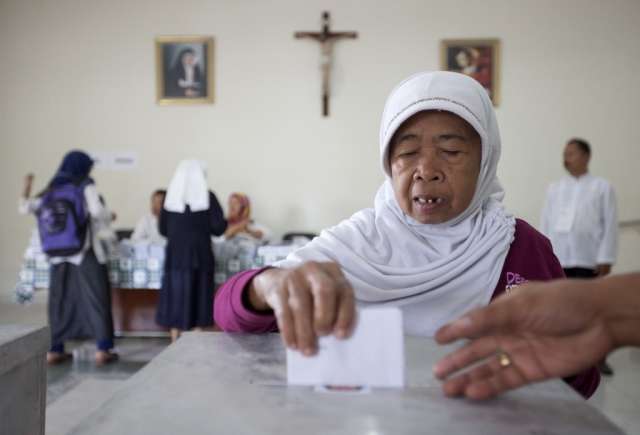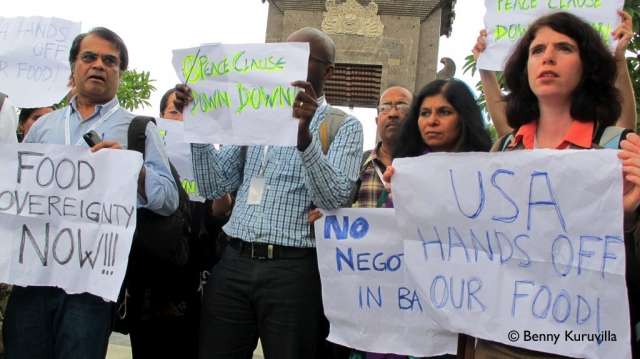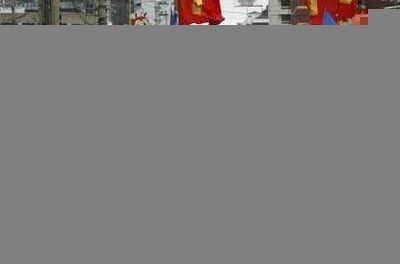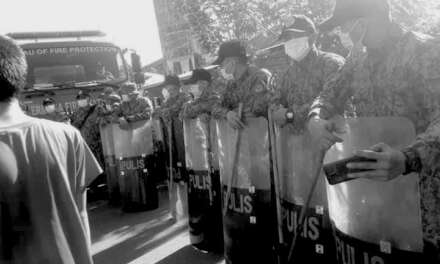Indonesia’s April 9 parliamentary election was relatively peaceful and clean, which shows how far democratization has come in the last 15 years despite the deep psychological and structural damages wrought by former Indonesian President Suharto. But as the presidential vote nears, it is increasingly clear that the process remains limited.
The popular movement that overthrew Suharto was only seeking for “reformasi,” not the “revolusi” demanded by Sukarno’s generation in the 1940s. The unfortunate result is that the general population continues to suffer under Suharto’s legacy of impunity for security forces, massive corruption and an economic model that caters only to the elite. The new democratic model is not empowering the masses, but rather, putting them at the service of an entrenched economic oligarchy. If Indonesia fails to change its direction, it is likely to become like my own country, the United States: a democracy in name only.
By putting too much faith in the electoral process alone, Indonesia risks repeating its old pattern of “floating masses” — or massa mengambang — with public participation but not public control. This arrangement might be suitable for the middle class, but it does not help the marginalized and poor.
The rapid political rise of Jakarta Governor Joko Widodo is an example of this type of façade. His move from mayor to presidential hopeful in less than two years reminds me of how quickly Barack Obama went from state legislator to poster boy of the Democratic Party before even being elected to Congress, and becoming his party’s presidential candidate before completing his first term in the Senate. It makes you wonder who’s pulling the strings.
Obama ran a campaign that was full of hope; hope that took root in the desperation felt by so many Americans. After two terms of George W. Bush, most were disgusted with what our country had become, with the government openly embracing torture and military aggression, and the economy in ruins because the poor could no longer afford to subsidize the Enrons and Halliburtons.
Indonesians face a similar desperation, seeing the parties that claimed to have the answers turn out to be just as corrupt and indifferent as the New Order under Suharto. As in the United States, there are powerful reactionary elements entrenched in Indonesian society, which we see in Suharto’s daughter’s bid for parliament and the Mussolini-style militaristic imagery used in her ex-husband’s campaign for the presidency. Understandably, this scares many people into rallying behind Jokowi.
Five years of Obama and the United States has a foreign policy marred by atrocities at Guantanamo Bay and anti-democratic intervention in Latin America, record numbers of deportations, a health care system that still enriches private corporations at the expense of public health and ongoing impunity for big business and the banks that created the economic catastrophe. And rather than opening democratic space, those brave enough to speak out against the system languish in jail or exile like Chelsea Manning and Edward Snowden.
As a candidate, Obama positioned himself to the left of traditional politics. He had a background of community organizing, a record of opposing the invasion of Iraq and he used language from popular struggles. Jokowi does not even have that. His background is merely that of a businessman, and the causes he embraces are safely within middle class interests like beautifying the city and tackling corruption.
Indonesia’s new president faces serious challenges. The pursuit of economic growth is deepening the divide between rich and poor, and military reform seems like a distant memory, with soldiers still outside civilian law and Densus 88 committing what is seen by some as extrajudicial killings. The instability has forced some issues to the fore that contain opportunities for structural change, like re-examining investment regulations and placing new controls on mining exports, but as the past 15 years have shown, such measures can be easily diverted to further enrich the wealthy.
What Indonesia needs is not an Obama, but real changes in the way things operate. Unfortunately, none of the current presidential candidates seem likely to pursue the structural changes needed for justice to flourish. Some of them should obviously be stopped. But is it enough to simply avoid electing someone believed by many to be a war criminal?
So far, Jokowi’s achievements have been mainly cosmetic. It’s easier to relocate a few dozen street vendors than to stop the palm oil concessions causing massive relocations of farmers and wildlife. Making bureaucrats more responsive and accountable is a good step, but the task of bringing security forces and corporations under the rule of law will require much greater political will. A Jokowi government is not going to offer a progressive agenda that threatens the status quo, but rather, at most, a slightly more responsive government and occasional opportunities for limited change.
As the failures of the Obama administration demonstrate, the real battles come after the election. From the very beginning of the new presidency, Indonesians will need to put consistent pressure on the government to make sure it upholds the modest goals of reformasi, let alone make a real break with the past. Positive messaging and vague promises should not be mistaken for action.
The great writer Gabriel Garcia Marquez, who recently passed away, had a novel about a washed-up colonel who said of hope: “you can’t eat it, but it sustains you.” The question is, for how long?










